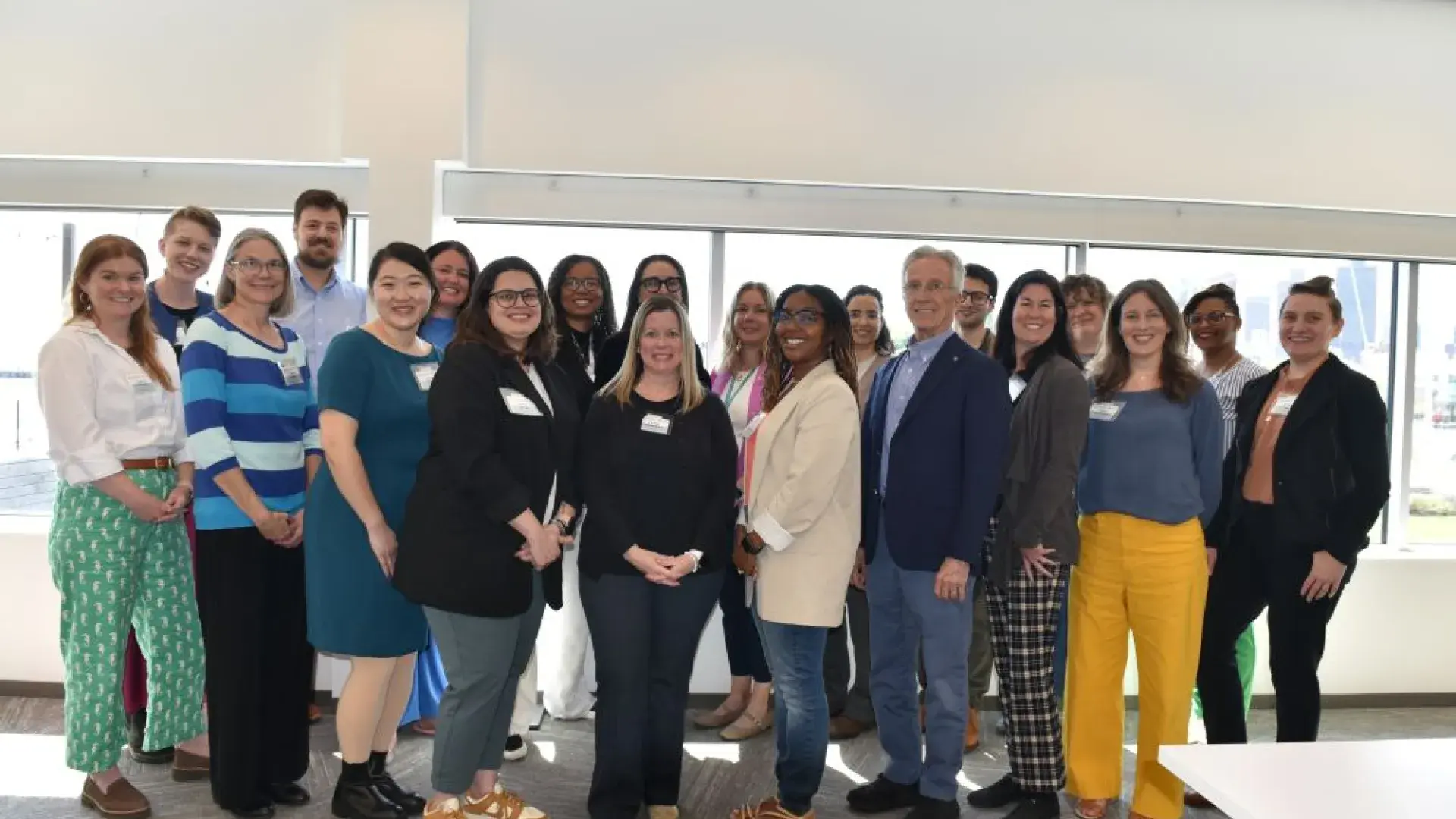
Researchers from the Learning Disabilities Translational Science Collective Visit Boston for Annual Meeting
Some of the top minds in the world who are working on treating speech, language, and reading disabilities were at the MGH Institute last week for the Learning Disabilities Translational Science Collective’s annual meeting. The international team of professionals from the universities that make up the Collective took part in two days of discussions, working sessions, and a meeting with community partners.
The Collective is one of two Learning Disabilities and Research Centers in the nation funded by the National Institutes of Health. It builds on work that started in 2006 at the Florida Learning Disabilities Research Center and looks to make new discoveries, translate them into practical solutions, and make sure those discoveries and solutions are useful and impactful for all children. It was primarily run through Florida State University initially, and when it expanded in the last round of funding, the MGH Institute, led by Tiffany Hogan, director of the Speech and Language (SAiL) Literacy Lab, joined the Collective as a co-lead center investigator. In addition to Hogan, Nicole Patton Terry from Florida State, Emily Solari from University of Virginia, and Sara Hart from University of Waterloo serve as co-leads, with partners at Northwestern, Vanderbilt, and Yale.
“Our goal is to bridge the gap between research and practice and work together with our community partners to do so,” explained Hogan. “What drives us is a focus on team science, each member’s unique expertise and talents, diverse voices and respect for diverse perspectives, and on the shared goal of improving child outcomes.”
The ongoing work is organized around four specific projects: the identification and classification of reading disabilities and the development of tools that better predict children’s risk for reading disabilities; studying how genes and the environment influence of how well children respond to reading interventions and the development of resources to help educators and families better understand genetic influences on reading; determining barriers and facilitators to the identification of reading and language disabilities in urban and rural schools and the development of resources to help educators use evidence-based practice in schools; and the study of early reading and language screening data and the development of tools to help implement effective classification systems in schools and school districts within a state-wide system. The projects are supported by administrative, data, and engagement cores.
During the meeting in Boston, the group updated each other on work being done for the projects and cores, and there were discussions on supporting translation and leveraging the collaboration of the Collective members. There was also an opportunity to interact with community partners.
“The gap between research and practice is often blamed on practitioners, but often overlooked are the systems we live in that make it hard for practitioners to get and apply research findings,” said Hogan. “The hope was the interaction between the Collective members and community members will help to bridge that gap. In our community event, we wanted there to be an opportunity for practitioners in Boston to learn from the Collective members who are visiting Boston, and who also want to learn from the Boston-based practitioners.”
Richard Wagner, who began the work of the Collective 20 years ago at Florida State, found Hogan’s community even particularly valuable.
“It is nice to have connections between researchers and people who are actually out doing this in their daily lives,” said Wagner. “I began as a school psychologist then transitioned into research and noticed the gap between what school psychologists were doing in practice and what we were doing research on. Bridging that research to practice gap is just critical, not only for getting the latest research out into the world but finding out what the real problems are in the world to start doing research on.”
Do you have a story the Office of Strategic Communications should know about? If so, let us know.
